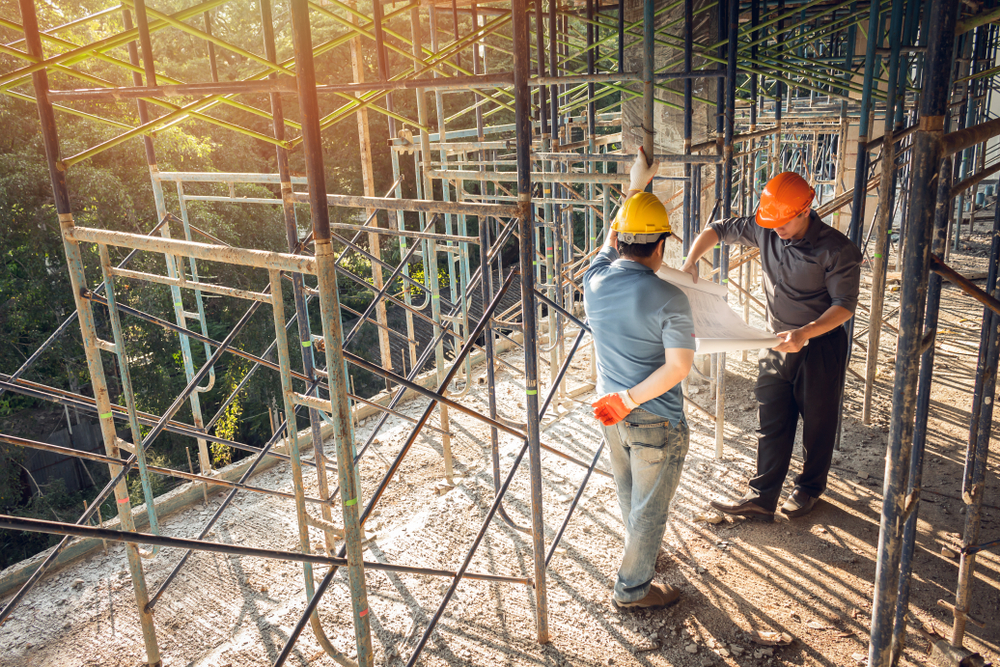What are the Rules for a Mechanics Lien in Illinois?

Construction projects often lead to great results, but sometimes payment issues arise. In Illinois, employing a mechanic’s lien is essential for contractors, subcontractors, laborers, and material suppliers to secure payment. Understanding the workings of these liens within Illinois is crucial. Grzymala Law Offices steps in here, offering unparalleled legal advice on Illinois mechanics lien laws, backed by over 45 years of combined experience in construction law.
Legal Basis of Mechanic’s Liens
A mechanic’s lien serves as a powerful legal tool for professionals in the construction industry, allowing them to secure payment for labor or materials provided to improve a property. This type of lien creates an encumbrance on the property’s title, essentially indicating that the property carries a debt that needs to be settled before the owner can sell or refinance. The presence of a mechanic’s lien ensures that contractors, subcontractors, material suppliers, and other professionals involved in the construction process have a means to enforce payment from property owners who fail to fulfil their financial obligations.
In Illinois, for instance, this is encapsulated within the Illinois Mechanics Lien Act (770 ILCS 60/1, et seq). This act provides detailed guidelines on who may file a mechanic’s lien, the process for filing, and the timeline within which actions must be taken to preserve these rights. Under the Illinois Mechanics Lien Act, the following parties are typically eligible to file a mechanic’s lien:
- Contractors: Those who have a direct contractual relationship with the property owner.
- Subcontractors: Those hired by the general contractor to perform work or provide materials.
- Material Suppliers: Companies or individuals who supply materials for the project, under certain conditions.
- Design Professionals: Including architects and engineers who contribute to the improvement of the property.
Filing Process
The process for filing a mechanic’s lien in Illinois involves several critical steps:
Notice
Subcontractors and certain other parties must provide a preliminary notice to the property owner, lenders, any parties in the chain of contract, informing them of the unpaid debt within 90 days of the last date of work.
Filing
The actual lien must be filed with the county recorder’s office where the property is located. The timing for this filing is crucial. For general contractors and subcontractors, the deadline is within four months of the last day of work to enforce the lien against third parties, and within two years to enforce directly against the original property owner. Subcontractors and others must serve the preliminary notice stated above and file the lien within specific periods as outlined in the Act which is four months of the last date of work or furnishing of materials
Enforcement
After filing, the lienholder must take legal action to enforce the mechanics lien claim within two years of the last date of work or furnishing, to secure the owed payment through court intervention if necessary by a foreclosure action. The Illinois Mechanics Lien Act is accessible for further detail via the Illinois General Assembly’s website.
Deadlines are Crucial
Illinois has strict deadlines for mechanic’s liens. Failure to comply can invalidate your claim:
Four Months for Claimants
For contractors and subcontractors, the Illinois Mechanics Lien Act mandates that a mechanic’s lien must be filed within four months of completing the work or furnishing materials for use at the property. This filing should be made with the recorder’s office of the county where the property is located. This deadline is critical for ensuring that your lien has priority over certain other claims on the property.
90 Days’ Notice for Subcontractors
Subcontractors are required to serve a notice of intent to file a lien on the property owner within 90 days of their last date of work or furnishing materials to the project. This notice must be delivered before the mechanic’s lien is officially filed. This requirement is designed to give property owners fair warning that a lien may be filed against their property, allowing them the opportunity to address the issue before it progresses further.
Two Years for Claims Against the Original Owner
Even if the four-month window for filing a lien has passed, claimants may still file a lien within two years of the work’s completion, but it will only be effective against the original owner of the property, not against third parties who may have acquired an interest in the property thereafter.
Let Grzymala Law Offices Support Your Mechanic’s Lien Efforts
Understanding and successfully applying Illinois mechanic’s lien laws requires careful attention to detail. Grzymala Law Offices possesses a deep understanding of Illinois construction law and the mechanic’s lien process. Our Chicago mechanics lien attorney can assist you in preparing and filing your lien on time, protecting your interests, and maximizing your chances of recovering the payment you deserve.
If you find yourself facing payment disputes on a project, acting promptly is critical. Seek legal guidance from our experienced Illinois mechanics lien lawyer to ensure compliance with Illinois laws and protect your right to payment. Reach out to us today.
